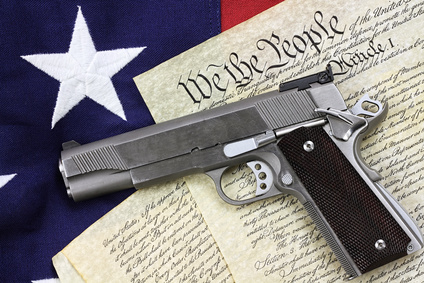Check this link (Getting A Federal Firearms License) for information on on Getting A Federal Firearms License
FLCG provides a personalized and guaranteed FFL licensing service. Please see the link below
Getting a FFL | How Difficult is it?
Getting a Federal Firearms License is not as difficult as one may think. FFL license cost and requirements are generally within the reach of the average person who may want to start a business requiring a FFL license. The FFL application (ATF F 7) is relatively easy to execute, and the ATF website offers almost all the information one might need to complete the process.
However, there are plenty of pitfalls, and even the astute applicant could become a victim of one of them if they’re not careful. The ATF website doesn’t necessarily point these out. Federal law provides for the average person or small business to qualify for a federal firearms license based on a set of minimum requirements.
Over the years, federal law and regulations have changed and created new obstacles to licensing. However, with a good plan, discipline, and perseverance, you will get your federal firearm license.
Always keep in mind that a federal firearms license of any Type, dealer, firearms manufacturer, or other, is required to engage in a firearms business. The license is not intended to serve as a means of engaging in a hobby or to enhance a personal collection.
Always consult an attorney prior to taking action on any of the matters addressed in this article.
1)What type of firearms business will you engage in?
Clearly determine exactly what you intend to do, and under what category it falls. The ATF Form 7 (Application for a Federal Firearms License) requests that applicants indicate the nature of the firearms business proposed.
Applicants must have a clear understanding of this prior to executing the ATF Form 7
For example, if you will be conducting what may by considered firearms manufacturing by law, you need to plan accordingly, and be prepared to get the proper permits, etc.
If you aren’t clear about this prior to applying, you will likely run into problems along the way not only with the federal application, but possibly with state and local officials as well.
You must be able to communicate to ATF and others the exact nature of your business.
Even if there is a possibility of some type of activity that requires licensing, it’s best to deal with the issue up front rather than get to a point in the process and find out the activity is not authorized, or get the wrong type of license and not be able to conduct the business.
2)How will your firearms business be structured?
Most firearms businesses are structured as corporations or Limited Liability Companies (LLC). However, this is a personal choice for you to make.
You should familiarize yourself the business structures available to you, the pros and cons of each, and implications with respect to liability, taxes and other legal matters.
Consult an attorney for advice on the best way to structure your business. Your particular state may have specific requirements for firearms businesses as well.
Federal law does not require a firearms business to be structured in any particular way, but does require that all FFLs comply with local, state or other laws and zoning ordinances.
Small or large firearms businesses may be structured as a sole proprietorship or partnerships. It’s entirely up to the individual business owner.
Contact us for a free consultation on your best choice for a business structure when getting your FFL.
Let us help you get your FFL.
Federal Firearms License Veteran’s Service
This is a Service – Not a FFL kit.
Free Consultation from a former ATF Investigator – 12 Years with ATF
Disabled Vets may qualify for free services
Call: 786-587-8827
3) What Type of FFL is proper for your firearms business?
The law requires that you acquire the proper federal firearms license dependent on the activity you plan to engage in. ATF is tasked with determining what activity you plan to engage in, whether you are qualified for licensure, and whether you have applied for the correct FFL license.
A common error made by applicants is the failure to clearly determine what type of firearms business they will engage in. For example, persons are not always aware that certain types of modifications or other actions taken with firearms are considered firearms manufacturing and require a manufacturers license.
On the other hand, persons do not understand a firearms importer license for example authorizes the FFL to deal in the same types of firearms they may import.
These issues are usually resolved during the interview process. However, the idea is to submit an application to ATF which is as correct and accurate as possible. You want to go through the system with as little friction as possible.
4) What location is proper for your FFL?
The location from which your firearms business will be conducted is referred to as the “business premises” in the law.
With regard to qualification for a federal firearms license, it’s extremely important that you research the proposed location and ensure that:
1) the business is suitable for the type of business proposed
2) the conduct of a firearms business is not prohibited by state or local law including firearms zoning restrictions.
Steps 5 and 6 in this series give more detail regarding this issue.
5) Is the firearms business you will engage in prohibited by the lease, or by any other restrictions or prohibitions with respect to the premises itself?
Once you have a potential location identified, determine from the landlord, association, owner, or any other party who controls the location, if the proposed firearms business will be acceptable and not prohibited by any covenants in the lease.
Examine the lease if possible, to ensure for yourself that the business you will conduct is acceptable to the other party. ATF will at least verify the lease, and may speak to the other party to ensure that the firearms business is not prohibited.
Whatever your arrangement is with the property owner, ensure that the business you will conduct is not a problem for them, and the lease (if written) does not prohibit your proposed firearms business.
Property leases may not always be in writing. Check your state law with respect to written leases, as this may vary depending on the state. In general, this type of agreement is not required to be in writing, although it is preferable for all parties concerned for leases to be in writing.
If a written lease is not available to you, and ATF requests a written lease prior to approval, you may want to contact an attorney regarding the matter.
Copyright 2013-2018 fflcounsultinggroup.com; FFL Consulting Group, Firearms Licensing and Consulting Group, LLC

